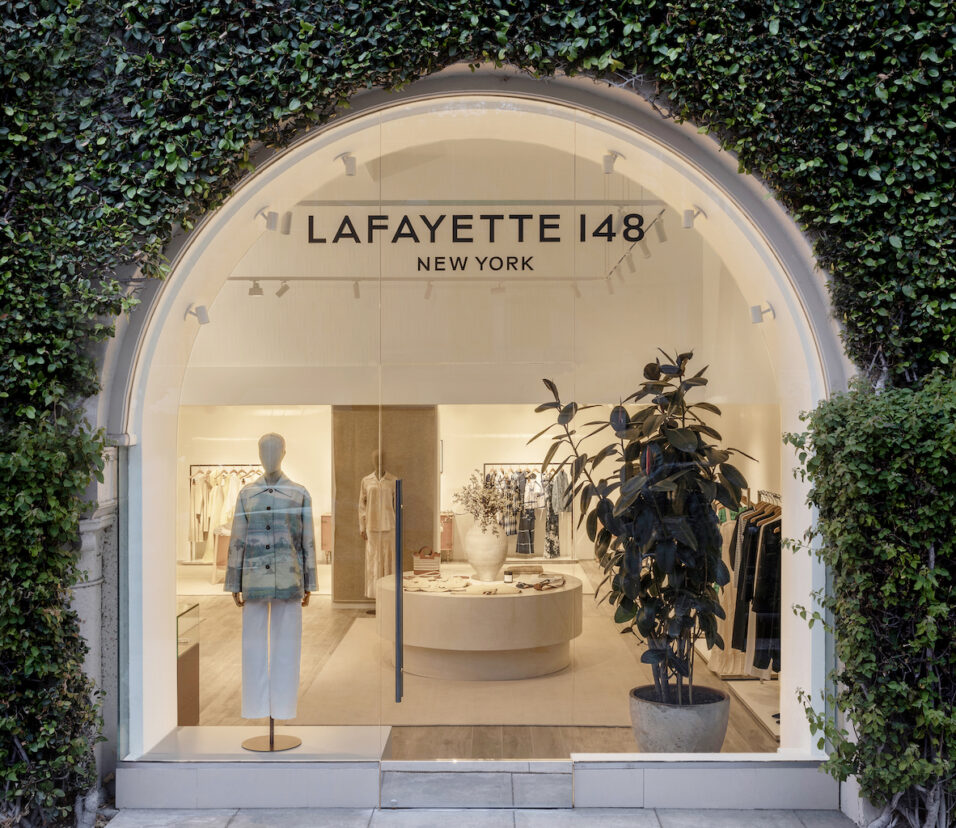Can Style Abandon the International’s Dirtiest Fossil Gas?

Over the latter 18 months, a few of model’s maximum robust companies have begun quietly urgent their providers to get coal out of factories within the coming years, or possibility dropping industry.
The rising drive displays public pledges model giants together with H&M Crew, Puma and Lululemon have made as a part of the UN Fashion Charter for Climate Action — the trade’s flagship shape initiative — to prohibit onboarding brandnew providers the usage of coal to generate the top temperatures had to dye and deal with materials. They’ve dedicated to ridding their provide chains of boilers that significance the fossil gas fully by means of 2030.
The struggle is important if the trade is to have any hope of taming its greenhouse gas emissions and staying in series with globally affirmative objectives to stave off the worst results of climate change.
Coal is without doubt one of the dirtiest fuels round, emitting extra carbon when it’s burned than both oil or herbal fuel. It’s a big a part of the calories combine in extensive model production hubs like China, Bharat and Vietnam. However the trade’s center of attention is the hundreds of coal-fired boilers impaired for energy-intensive rainy processing in cloth turbines world wide, the place manufacturers have higher affect.
“[Coal], especially on-site coal — that is priority number one,” stated Betsy Blaisdell, supervisor of environmental stewardship at consultancy Guidehouse, which fits with manufacturers together with H&M Crew and tasks just like the Style Pact. “When you remove coal from the mix, you get to see carbon-emission reductions of 70 percent plus.”
The problem is that coal is affordable, out there and constructed into the trade’s current infrastructure. Possible choices require in advance funding, include their very own business offs and face a space of technological and sensible hurdles, from value to availability.
“[The brands] sit in the US and Europe and say all factories should remove coal boilers. It sounds like a fantastic idea, but it’s not realistic on the ground,” stated Vidhura Ralapanawe, head of sustainability and innovation at Hong Kong-based sourcing and provide chain control industry Epic Crew, which may be a Style Constitution signatory. “We really don’t have a good apparel sector decarbonisation roadmap.”
Imperfect Answers
Simply figuring out the scope of the disease is tricky. Boilers are in most cases found in fabric mills, the place energy-intensive processes to dye and deal with textiles shoot park. However maximum manufacturers have tiny perception of the place the fabrics they significance come from, let unloved a technique to aid those companies in a shift clear of coal.
Eminent manufacturers and producers are already operating to loose their reliance at the gas, however all recognise there is not any easy silver bullet resolution. Boilers are tricky to impress, and date the generation to take action is rising, it most effective in reality solves the underlying disease if the electrical energy grids aren’t operating on coal.
Pakistan-based denim producer Inventive Milliners is making plans to spend some $30 million on decarbonisation tasks. The corporate has put in sun panels on its manufacturing facility roofs and it’s adapting its boilers to run on herbal fuel or biomass from agricultural wastage, rather of coal. However its renewable capability is inadequate to totally run its amenities, let unloved energy energy-hungry boilers. In the meantime, coal possible choices are costlier, more difficult to come back by means of and feature their very own environmental luggage.
“We can set up wind power, solar power, but we cannot utilise more space than we already have for on-site power,” stated accountable industry initiatives top Saqib Sohail. “When you go to other options, like biomass, it’s not every area in the country that you can get supply… [and it] cost us a lot because coal in Pakistan is cheaper.”
To do away with coal, the trade has to resolve those demanding situations at scale. To satisfy its shape loyalty, it has to do it speedy.
In spite of the problems, many see a shift to much less polluting fuels as essentially the most reasonable future of now as it doesn’t require hefty funding in brandnew applied sciences or infrastructure. Corporations together with Puma and H&M Crew are encouraging their providers to modify to biomass the place imaginable, to keep away from changing coal with herbal fuel, any other fossil gas.
However biomass may also be generated from a space of resources, together with timber pellets which have been connected to deforestation. Similar to coal, burning it could motive obese breeze air pollution. Get admission to to supplementary provides, like agricultural wastage, is seasonal and really native. Call for is expanding as alternative industries additionally glance to decarbonise, elevating issues that gas vegetation may just displace meals. Requirements for accountable biomass don’t lately exist, even though the Style Constitution is operating to get the trade to agree on some.
At the alternative hand, extra game-changing possible choices are much costlier and depend on applied sciences which can be simply starting to emerge.
“We’re looking at unprecedented goals,” stated Gauri Sharma, sustainability communications and innovation top at Indian production immense Shahi Exports. “What’s the alternative to biomass, coal, natural gas? It’s electrification, and that’s going to take huge investment.”
Who Can pay?
Environment motion isn’t the one section the place manufacturers have upped the drive on providers in contemporary months. Unstable markets and stock woes within the wake of the pandemic have created whipsawing call for and intense pricing pressure that providers say manufacture it difficult to decide to large eco-investments and even shoulder the price of substituting supplementary fuels for coal.
“Right now there’s severe demand contraction in orders. There is a massive fight for discounting. So if I price myself focusing on climate, I will not survive,” stated Ralapanawe.
Manufacturers pushing to take away coal boilers from their production bottom say they’re operating with providers to assistance manufacture the shift. H&M Crew has dedicated $300 million a time to initiatives that can loose its emissions, together with phasing out coal. It has partnered with Guidehouse to build initiatives that mix potency tasks with extra expensive programmes to oath a go back and lure manufacturers and others to co-invest with their providers.
However maximum firms aren’t placing their very own money into decarbonisation programmes in companies they don’t personal or perform, pointing rather to knowledge-sharing aid, efforts to assistance producers get admission to inexpensive credit score and sourcing scorecards designed to praise firms with a decrease environmental footprint.
“In the long run those investments are required to be able to continue to operate,” stated Veronique Rochet, senior head of sustainability at Puma. The sports clothing emblem is operating with just about two accumulation factories that also significance coal-fired boilers in its core provide chains to know and enforce workable possible choices.
Providers say it’s sun-baked to shoot a long-term view in a industry the place fortunes run on a cycle as speedy as model traits and no longer all shoppers are talking the similar language on shape. Instead than assistance gaining access to debt financing, they would like with the intention to are expecting their industry trajectory and promote merchandise at a worth that lets them decide to large-scale investments.
“Sourcing offices’ metrics are still not necessarily about sustainability, it’s about price,” stated Delman Lee, vice chair at Hong Kong-based production immense TAL Attire. The producing immense doesn’t personal any turbines, however is operating with providers to bring by itself shape loyalty. Combined messages from shoppers manufacture that more difficult. “I have a portfolio of customers. Not all are on board on climate change,” stated Lee.
Getting Political
Untangling the knotty tensions between industry pursuits and environmental imperatives is more likely to most effective be imaginable with the assistance of presidency intervention within the mode of legislation and incentives. However the politics of decarbonisation is similarly charged.
At the one hand, mounting regulatory drive at the model trade — in particular in Europe — is getting the sphere to exit, with scrutiny rising on whether or not manufacturers are in fact doing anything else to reach emissions discounts. At the alternative, producers are confronted with an asymmetric taking part in grassland, with their skill to evolve to decarbonisation calls for deeply suffering from advanced regional politics, economics and infrastructure features.
“If you want to remove coal, you have to replace it with an alternative power source, so who has that with adequate quantity that it could be used to replace coal? Is this supply sustainable in some form, and what does it do to the economic model? And that varies from geography to geography,” stated Ralapanawe. “The question is, are we on a journey together, or are we going to get into cutthroat competition?”






Leave feedback about this